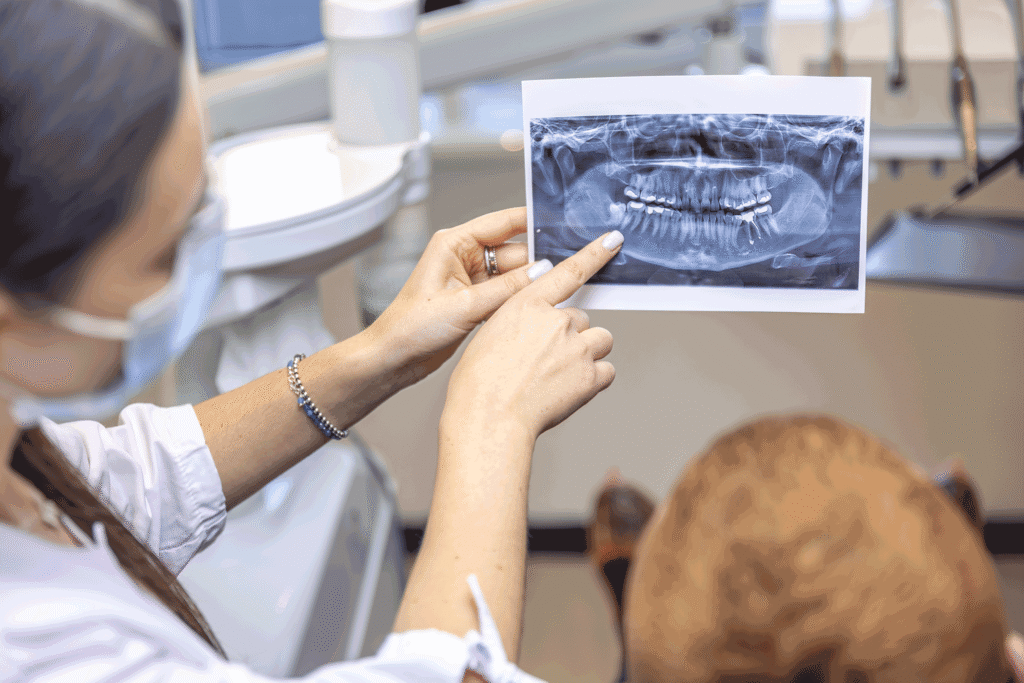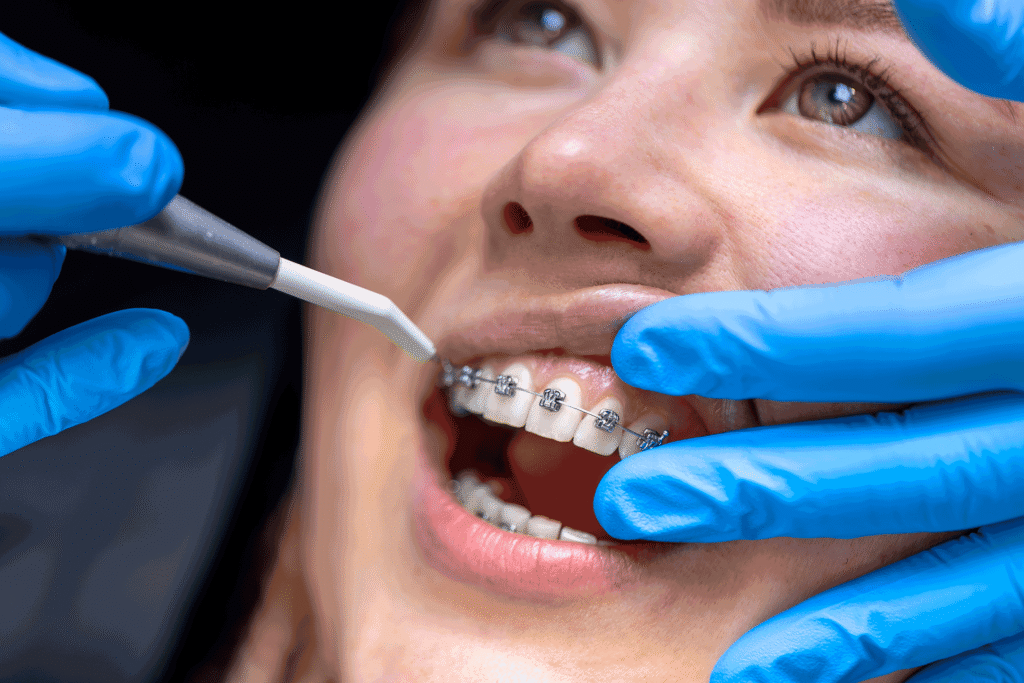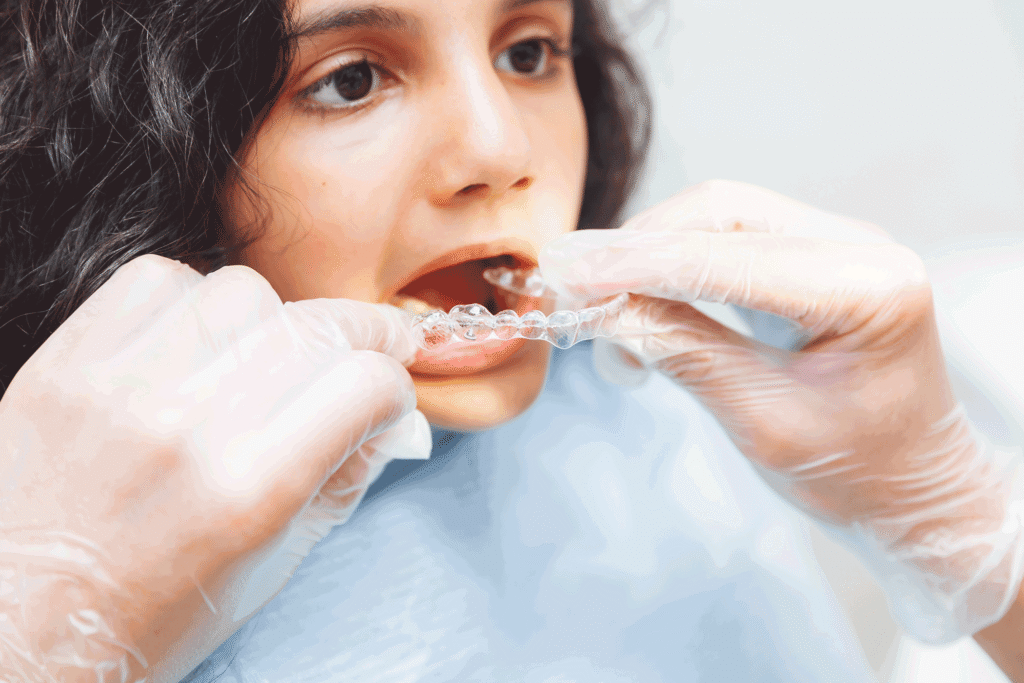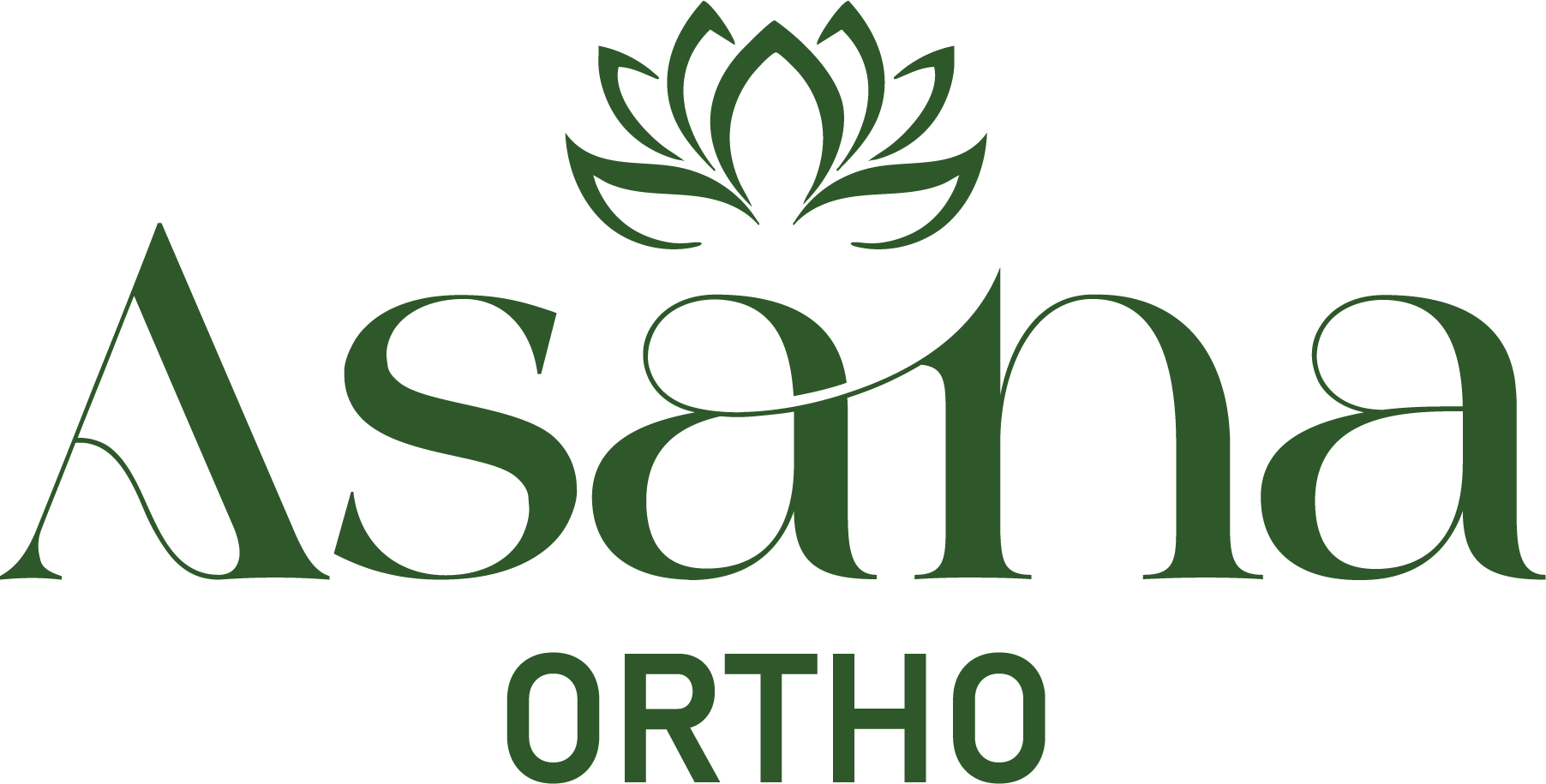Find if you need treatment
-
Treatment Options
- Candidacy for Orthodontics

Does a Healthy Smile matter?
- A healthy, confident smile can make a difference. Studies show that people with straight, attractive teeth are often perceived as more successful, approachable, and confident. A great smile can boost your self-esteem and help you make a strong first impression in social and professional settings.
- Early evaluation is key. Addressing orthodontic concerns early can prevent more complex issues later and often leads to shorter, simpler treatment.

“Smiles are not just about aesthetics; they reflect the health of our chewing, sleep, and breathing.”
Signs To Consider For an Orthodontic Evaluation
- Crowded or Crooked Teeth Difficulty cleaning between teeth, overlapping, or teeth that don’t seem to fit together properly.
- Gaps or Spacing Noticeable spaces between teeth, which can affect appearance and function.
- Bite Issues Overbite, underbite, crossbite, or open bite – when your top and bottom teeth don’t align correctly.
- Difficulty Chewing or Biting Discomfort or trouble eating certain foods.
- Early or late loss of baby teeth
Losing baby teeth much earlier or later than peers can signal underlying alignment issues.
- Mouth breathing or snoring
Breathing through the mouth or snoring at night may indicate airway or jaw development concerns.
- Self-consciousness about your smile
Feeling unhappy or insecure about the look of your teeth.




Does Early Evaluation Help?
For Children: Guiding Growth and Preventing Future Issues
The American Association of Orthodontists (AAO) recommends a child’s first visit by age seven. At this stage, interceptive orthodontics can:
- Guide Jaw Growth: Address issues like underdeveloped jaws or significant overbites/underbites while a child is still growing, often reducing the need for more complex treatments later.
- Create Space: Proactively manage crowding to help permanent teeth erupt properly, potentially avoiding future extractions.
- Correct Harmful Habits: Stop habits like thumb-sucking that can negatively impact jaw and tooth development.
- Improve Function & Safety: Enhance speech and chewing, and reduce the risk of injury to protruding front teeth.
- Simplify Future Care: Make any necessary comprehensive treatment shorter, simpler, and more predictable.
For Adults: Protecting Health and Enhancing Aesthetics
For adults, “early” means addressing issues as they arise, preventing them from worsening:
- Prevent Worsening Problems: Stop minor misalignments and bite issues from escalating into more severe dental problems like excessive wear, gum disease, or bone loss.
- Improve Oral Hygiene: Straighter teeth are easier to clean, significantly reducing the risk of cavities and gum disease.
- Address Bite Issues: Correct problems that can lead to uneven tooth wear, chipping, or TMJ strain and pain.
- Facilitate Other Dental Work: Prepare the mouth for successful placement of crowns, implants, or other restorative procedures.
- Boost Confidence: Achieve a healthier, more confident smile at any age, often with aesthetic options like Invisalign.
In essence, early evaluation for children leverages growth for foundational corrections, while for adults, it’s about protecting current oral health, preventing future complications, and enhancing lifelong well-being.
